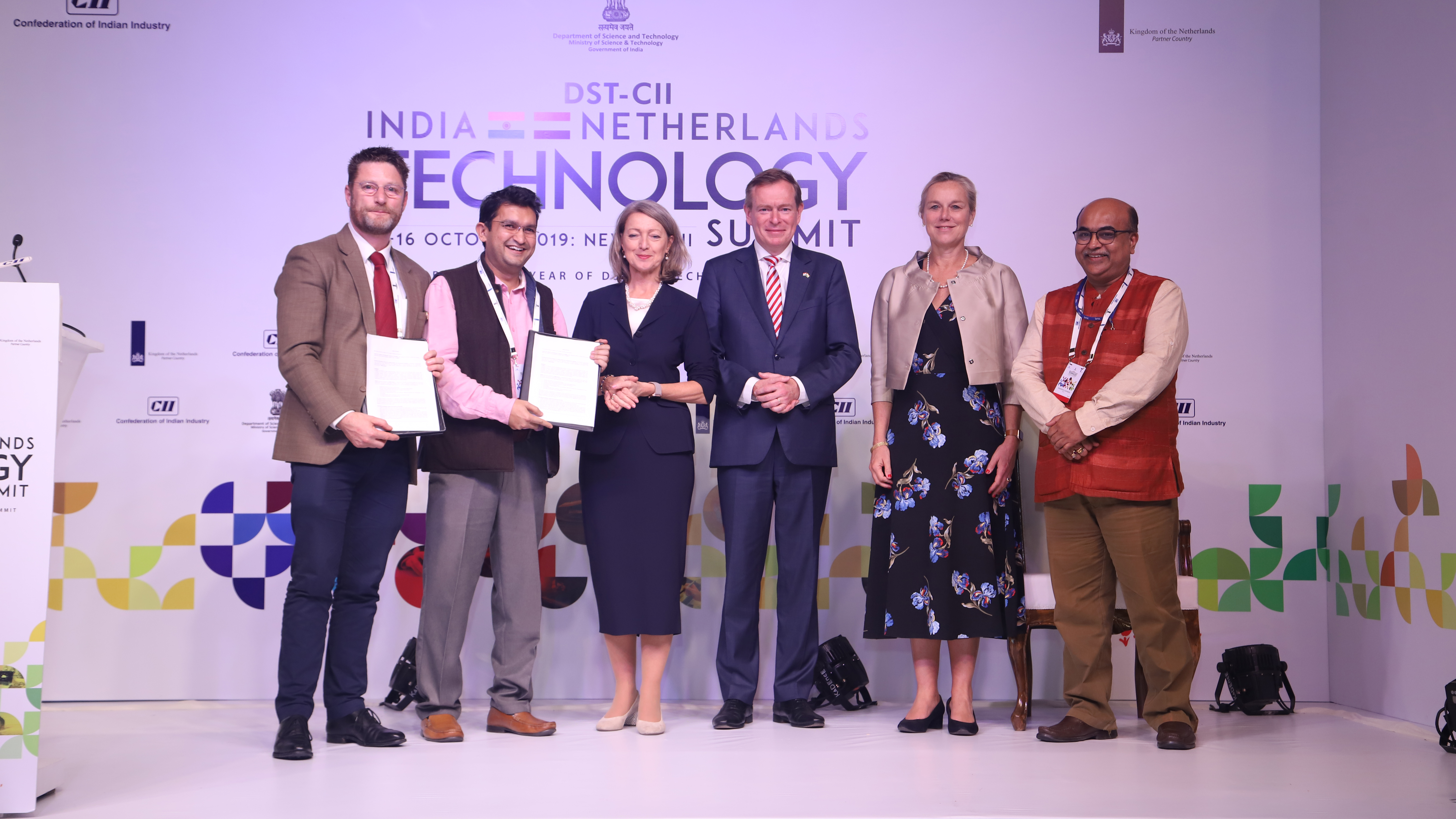
18 Oct Dutch-founded network formalizes partnership with India to tackle biggest global health threat: antimicrobial resistance
A new partnership will leverage collective expertise to impact antimicrobial resistance around the world. A letter of intent between the Dutch consortium AMR-Global and C-CAMP (Centre for Cellular and Molecular Platforms) in India, was signed this week, marking a formal collaboration between the two groups.
The new collaboration gets in the footsteps of successful collaborations between the Netherlands and India for over half a century in the field of vaccine development, and now expands this rich tradition address co-creation principles to the nowadays needs in preventing and treating infectious diseases. It is the first formal partnerships of its kind between a Netherlands-based network and an Indian counterpart on addressing the problem of antimicrobial resistance (AMR).
Combining their respective expertise, AMR-Global and C-CAMP will accelerate research and innovation with a specific focus on resistant bacterial infections such as antimicrobial resistance (AMR). The letter was signed during the annual India-Netherlands Technology Summit, which takes place this week in New Delhi in the presence of Bruno Bruins, Minister for Medical Care and Sports, and Minister Sigrid Kaag for Foreign Trade and Development Cooperation.
AMR-Global is a recently launched public private partnership (PPP) that establishes connections with academia and companies within and outside the Netherlands to address antimicrobial resistance (AMR) around the world. The Amsterdam Institute for Global Health and Development is a founding member of the network.
“Through our work in AMR-Global, the Netherlands is taking a lead on this topic globally. The Netherlands is one of the global frontrunners in the fight against AMR, as evidenced by the low prevalence of resistant infections in the country,” said Prof. Constance Schultsz, AMR-Global lead from AIGHD.
“With India being a leader in the fight against AMR and a significant producer of the world’s antibiotics, this partnership is a natural fit to leverage our collective expertise. Together with C-CAMP, we stand a much better chance of finding impactful and effective solutions to this worldwide issue.”
C-CAMP is an initiative of the Department of Biotechnology at Ministry of Science and Technology in India, established to enable cutting-edge life science research and innovation with an emphasis on fighting resistant bacterial infections.
AMR-Global and C-CAMP will join forces to ensure that everybody around the world has access to effective antimicrobial drugs and vaccines, and that sustainable alternatives are available to curb the current overconsumption of antibiotics in both humans and animals. The letter of intent is a concrete step in that direction.
AMR is the ability of a microorganism, such as bacteria or viruses, to stop an antimicrobial (antibiotics, antivirals and antimalarials) from killing it. It impacts all areas of health care in every corner of the world. Resistance to antibiotics, for example, means that major surgery procedures and cancer chemotherapy treatment could be compromised. AMR is an increasingly serious threat to global public health that requires action across all government sectors and society, according to The World Health Organization. AMR is one of AIGHD’s research priority areas.
